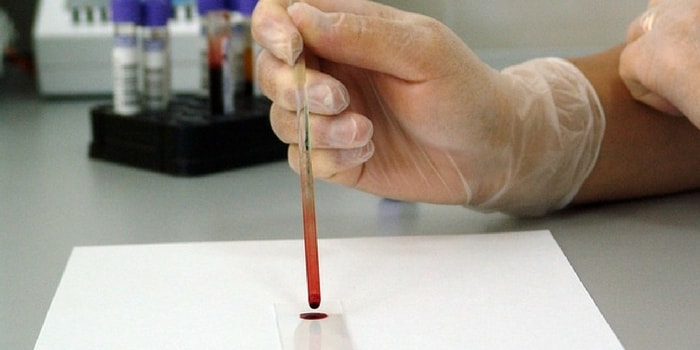Starting Medical Diagnostic Center – Profitable Business Plan Sample

Pathology is a very critical term which explains the art or science of determining the cause of a particular disease. It deals with the laboratory examination of samples of body tissue for diagnostic or forensic purposes. It is therefore very important to have pathology laboratories in all accessible places to arrive at the result of the disease occurred. Having this, the need for these labs have been increasing day by day due to direct increase in the number of patients.
Also, the range of diseases and their complexity have contributed to the necessity of having a pathology lab. If you wish to start a business which is of high demand and scope, then setting up a Pathology lab or diagnostic center would be the most appropriate one for you. Before setting up such a lab, few factors are to be considered which will reveal the costs of setup along with the needed arrangements.
Before going into detailed diagnostic center business plan, I want to highlight some of the important facts about diagnostic centers in India. These are:-
- Size of diagnostic industry is around 5 billion dollar and it is growing at 14 – 16% every year.
- There are around 1 lakh diagnostic center in India.
- Out of 1 lakh, pathology lab represents 70%. Radiology and imaging such as CT scan, X-ray, MRI, and ultrasound labs represents 30%.
- 90% of the total players in this industry are unorganized.
- Estimates show that only 1% of the total diagnostic center in India are accredited.
Some of the medical tests performed in diagnostic center are as follows:-
- Clinical Pathology – Laboratory analysis of body fluids such as urine and blood.
- Radiology – Medical tests using imaging techniques such as CT scan, x-rays, MRI, PET and ultrasound. Check out this website to learn more.
Starting a diagnostic center is not an easy task. Setting up a diagnostic center of just a pathology lab will need proper location, capital and knowledge about latest investigations and medical tests performed in a lab.. Here is a quick overview of what it takes before one can start a diagnostic center in India.
Steps involved in starting a diagnostics center in India are as follows:-
- Business Registration – You have to register your business to get a legal entity in the form limited liability company, proprietorship or as a partnership company.
- Get required license – List of license required is given below.
- Hire qualified technicians
- Setup lab infrastructure
- Setup lab equipments
License required to start a diagnostic center
Medical industry focuses more on safety and having that there are a number of regulations and rules to be followed before setting up a pathology lab. The reports from the pathology lab should be accepted by the hospitals and for that the licenses are required. The reports issued from a lab which is not licensed is considered illegal. Licensing is not only for the lab, but also for the staff involved. All of them should have a qualification which meets the regular standards so that they are qualified to handle any type of case. The required licenses are given below.
- Accreditation from National Accreditation Board for Testing and Calibration Laboratories (NABL)
- Accreditation from Good Clinical Practices (GCP)
- Get registered with Shops and Establishments Act
- Get registered with Clinical Establishment Act
- Get registered with biomedical waste disposal body
- Get approval for waste generation from pollution board in your state
- Get NOC from fire department
- Get NOC from municipality
Important read – Clinical Establishment Act to soon come into force in Capital
For radiology and high end imaging services which deal with radiation-based technologies such as such as CT scan, x-rays, MRI, PET and ultrasound, diagnostic centres are required to take approvals from certain bodies such as Atomic Energy Regulatory Board (AERB) and Bhabha Atomic Research Center (BARC)
Alongside regulatory compliance, ensuring staff have access to ongoing educational resources is vital for maintaining the highest standards of care and technological proficiency. Educational programs and training opportunities, such as those found through accredited institutions, play a critical role in this endeavor. Explore these educational resources for more information on enhancing your team’s expertise in medical imaging and diagnostics.
Qualification required to open a pathology lab
- You should be a qualified pathologist and must have required license to practice from the Medical Council of India.
- You will require a biochemist, pathologist and a microbiologist.
- Lab technicians with Diploma or bachelor’s in medical lab technology.
Setup requirements and cost estimation
The setup cost of the lab purely depends on the services offered and investment you make in the business. The lesser the investment, lesser will be the number of patients for whom the service is provided. If there is more or enough investment to spend adequately on infrastructure, space, staff, machinery and software tools the higher will be incoming and outgoing of patients in your lab. From this, there is a clear view that these five parameters like infrastructure, space, staff, equipment and software tools decides the entire setup planning and organisation.
Infrastructure
The setup has to give focus to the infrastructure of the lab since this may help the staff work efficiently without any disruption. The availability of accessibility of various services of the lab should be well communicated to the patients who visit the lab for tests. There should be a very clear layout planned for various rooms and treatment areas so that the planned activities of each department are done without any hindrance.
Facilities like clean restrooms, lift services, wheel chairs, and other basic elements of a hospital should be present in the pathology lab too. Apart from these, the level of cleanliness should always be kept high. Since the sector is related to medical activities, even a minor deviation from healthy surrounding will lead to serious problems for both the patients and the staff working there.
Staff
The staff selected to work in the lab should meet the set standard qualifications for respective designations. The procurement phase has to be expensive with rounds of screening, so that the resulting staff are efficient enough to handle the complex problems in the medical field.
The lab technicians are also appointed to have a thorough control and knowledge over the machines used in the lab. They should be provided with training and induction during the initial stages of their appointment. This is basically to reduce the errors they make and to make them adapt to the methods of the lab.
Uniformity in work and operations of the lab will be achieved if training is given. The appointed staff should be vaccinated with necessary medicines to safeguard them from the communicable diseases of the patients.
The staff appointed should frequently be assisted by a medical representative who will perform the activation of updating the staff with changing techniques. The medical representative will be informing you and the staff regularly about the dynamic conditions in medical field. New innovations, new medicines, and new techniques will be informed so that you make necessary changes in the methods of finding results.
Space
Minimum space requirement should be to fit hundred patients and their respective attenders. Patients should not be left to merge and sit together or have a congested environment due to insufficient space. Maximum attention should be given for space so that the related factor infrastructure also turns out to be an efficient one. Space planning is necessary to place things right at its place. Clubbing of two three departments performing various activities should not happen since they may result in misplaced results or any other undesirable condition.
Software tools
It would be a great support if you can carry out the activities of the lab in a computerised manner. This will eliminate discrepancy in results and will be an efficient time-saving opportunity. Updating each patients file with the results, sending them reminders, having a record of their medical history will be possible with strong software tools and a staff with adequate knowledge in this field. Apart from serving the patients with software tools, there is a need for these tools in supporting the lab work too. Diagnosis will also require efficient systems and programming to arrive at the results.
Equipments
The equipment required for the pathology lab has a very different range of items in it. I would recommend to purchase them all by having a checklist since you might miss one or two important items. At times, even if your lab is highly rated in other four factors like staff, space, infrastructure and software, you will be rated low if you are running short of equipment in your lab.
Having a diverse range of testing tools is the only way to make your lab more productive to the patients coming in. The basic expectation of any patient will be the availability of all the required services at one place. To ensure that, you will have to procure an install the necessary items. Of this, the most important part is the safety aspect of the purchased equipment.
All of it should be revised as and when required or even on the basis of a scheduled time. This will considerably maintain the working life of the machine and facilitates less expensive maintenance costs. It is a better option to carry out preventive maintenance, than breakdown maintenance. Some of the most important equipment needed in a pathology lab are listed below.
- Full auto analyser
- Semi-auto analyser
- Elisa washer
- Elisa reader
- Blood cell counter
- Microscope
- Centrifuge
- Regent and chemicals
- Deep fridge
- Dispensing scale
- Blood gas analyser
- Colorimeter
Apart from the listed items, there are few more which you can select on the basis of diversification of your service.
Marketing plan for pathology services
Marketing is to attract more patients to your lab and this means, you should be in a position to fulfill their needs. People generally rate a medical sector with the services they provide. In that context, the main objective of the lab of providing results is to be done as expected.
Fast results are more important as they stand as a parameter to rate the lab. The more faster the service is, the more it gets popular.
Having tie-ups with hospitals will be a very effective method of marketing. Patients who need pathology test will be directed to your lab and hence you get a patient to serve. Similarly, you will have to develop the opportunities around you.
Make contracts with smaller labs to help them in services which they do not provide or is inefficient of providing due to lack of specific machines.
It is mandatory to have knowledge about pathology and related filed since mistakes in services provided will be a serious problem later. If you are not aware of this study, you can enjoy ownership alone by appointing a very efficient pathologist to have a control over all the activities of the lab. Appointment of the staff will also be done by the pathologist to weed out the unfit ones accurately. You will a person only to provide funds and to earn profits, but the entire setup will be under the control of the pathologist.
As of now thee two are the most important and mandatory licenses for setting up a pathology lab. Thus, if your objective is to start a business in this line you can very well proceed with it now. Proper planning and implementation makes the success of any business. And in Pathology labs, prior planning and decisions regarding place, registrations and investment is something which has to be given more importance. Definitely this growing business will earn a very decent income, if done in a very organised manner.
FAQS
A diagnostic center is a medical facility that is used to diagnose and treat patients. Diagnostic centers typically have a wide range of diagnostic and treatment options available to patients, including X-rays, MRI, and CT scans.
There are many benefits of having a medical diagnostic center. Some of these benefits include:
1. Improved patient care: Medical diagnostic centers can help to improve patient care by providing more accurate and timely diagnoses. This can lead to better treatment and faster recoveries.
2. Reduced costs: Medical diagnostic centers can help to reduce the overall cost of healthcare by providing more affordable and efficient testing and treatment options.
3. Increased access to care: Medical diagnostic centers can help to increase access to care by providing services to underserved populations. This can help to improve the overall health of the community.
4. Improved quality of care: Medical diagnostic centers can help to improve the overall quality of care by providing more accurate and timely diagnoses. This can lead to better treatment and fewer complications.
The different types of medical diagnostic centers are:
– Clinical laboratories
– Imaging centers
– Cardiology centers
– Gastroenterology centers
– Neurology centers
– Oncology centers
– Orthopedic centers
– Pediatrics centers
– Physical therapy centers
– Rehabilitation centers
However, the services offered by each medical diagnostic center will vary some. But, in general, medical diagnostic centers offer a variety of tests, procedures, and treatments that can help to diagnose and treat a number of different medical conditions. Some of the services that may be offered by a medical diagnostic center include X-rays, MRIs, CT scans, ultrasounds, nuclear medicine scans, and PET scans. In addition, many medical diagnostic centers also offer biopsies, laboratory testing, and a variety of specialty services.
The staff at a medical diagnostic center can vary depending on the size and specialty of the center. However, most centers will have a team of doctors, nurses, and other health care professionals who work together to provide diagnostic services.
There are several risks associated with medical diagnostic centers, including:
1. Infection: There is always a risk of infection when undergoing any medical procedure. This is especially true if the center is not properly sterilized.
2. False positives: In some cases, diagnostic tests may come back with a false positive result. This can lead to unnecessary anxiety and treatment.
3. False negatives: Similar to false positives, false negatives can also occur. This means that a condition may be present but not detected by the diagnostic test.
4.Misinterpretation of results: Results from diagnostic tests are not always straightforward. They may require careful interpretation by a trained medical professional.
There are many challenges associated with expanding a medical diagnostic center, including:
1. Finding the right location: The new center should be located in a convenient and easily accessible area for patients.
2. Hiring additional staff: The center will need to hire additional medical staff, including doctors, nurses, and technicians.
3. Procuring additional equipment: The center will need to purchase additional medical equipment, such as X-ray machines and ultrasound machines.
4. Meeting regulatory requirements: The center will need to meet all local and state regulatory requirements, including obtaining the necessary licenses and permissions.
There are many policies and procedures that a medical diagnostic center may have in place. Some of these policies and procedures may include:
1. Appointments: A medical diagnostic center may require appointments for certain procedures or tests.
2. Cancellations: A medical diagnostic center may have a policy in place for cancellations. This policy may include a fee for cancellations.
3. Insurance: A medical diagnostic center may accept certain insurance plans. Patients should check with their insurance provider to see if their plan is accepted.
4. Payment: A medical diagnostic center may have a policy in place for payment. Patients may be required to pay for services upfront, or the center may offer financing options.
5. Privacy: A medical diagnostic center will have policies in place to protect the privacy of patients. These policies may include HIPAA compliance.
6. Referrals: A medical diagnostic center may require referrals from a primary care physician before certain tests or procedures can be performed.






